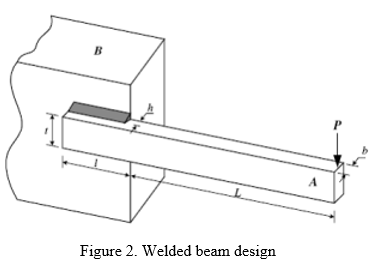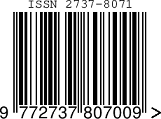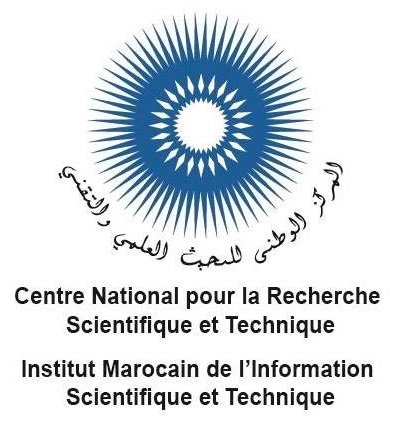A Novel Hybrid Jaya Algorithm
Keywords:
Evolutionary Algorithm , Differential Evolution, Fire Fly Algorithm, Shuffled Frog leaping, Gravitational Search AlgorithmAbstract
The Hybrid JAYA (HJAYA) algorithm, a potent and hybridized optimization method, is suggested in this study as a solution to restricted design engineering optimization issues. The idea behind this innovative method is that the best solution found for a given problem shouldn't become stuck in local optima, but instead should aim to advance towards the best answers found thus far. The technique is further accelerated by using a novel starting strategy to provide better answers with fewer function evaluations. As fewer method-specific parameters are needed, this algorithm is simple to implement. By using it to resolve seven challenging constrained problems, including two from design engineering, the algorithm's effectiveness is assessed. Our findings are contrasted with those of other well-known methods found in the literature. The results show that, in terms of creating high-quality solutions, our suggested technique is either superior to or comparable to other algorithms. HJAYA is also applicable to issues in specific fields.
Downloads
References
Eiben, A.E. and Rudolph, G., 1999. Theory of evolutionary algorithms: a bird’s eye view. Theoretical Computer Science, 229(1-2), pp.3-9.
Li, M.J., Luo, A. and Tong, T.S., 2004. Artificial immune algorithm and its applications. Kongzhi Lilun yu Yingyong/Control Theory and Applications (China), 21(2), pp.153-157.
Geem, Z.W., Kim, J.H. and Loganathan, G.V., 2001. A new heuristic optimization algorithm: harmony search simulation, 76(2), pp.60-68.
Ahrari, A. and Atai, A.A., 2010. Grenade explosion method—a novel tool for optimization of multimodal functions. Applied Soft Computing, 10(4), pp.1132-1140.
Sarzaeim, P., Bozorg-Haddad, O. and Chu, X., 2018. Teaching-learning-based optimization (TLBO) algorithm. In Advanced Optimization by Nature-Inspired Algorithms (pp. 51-58). Springer, Singapore.
Rao, R.V. and More, K.C., 2015. Optimal design of the heat pipe using TLBO (teaching–learning-based optimization), algorithm. Energy, 80, pp.535-544
Rao, R., 2016. Jaya: A simple and new optimization algorithm for solving constrained and unconstrained optimization problems. International Journal of Industrial Engineering Computations, 7(1), pp.19-34.
R V. Rao, D.P. Rai, J. Balic, Surface Grinding Process Optimization Using Jaya Algorithm, Comput Intell Data Min. 2 (2016) 487-495. doi:doi.org/10.1007/978-81322- 2731-1-46
Oc?o?, P. Cisek, M. Rerak, D. Taler, R.V. Rao, A. Vallati, M. Pilarczyk, Thermal performance optimization of the underground power cable system by using a modified Jaya algorithm, Int J Therm Sci. 123 (2018) 162–180.
K. Yu, J.J. Liang, B.Y. Qu, X. Chen, H. Wang, Parameters identification of photovoltaic models using an improved JAYA optimization algorithm, Energy Convers Manag. 150 (2017) 742–753. Doi: 10.1016/j.enconman.2017.08.063.
R. V. Rao, K.C. More, optimal design and analysis of mechanical draft cooling tower using improved Jaya algorithm, Int J Refrig. 82 (2017) 312–324. Doi: 10.1016/j.ijrefrig.2017.06.024.
R.V. Rao, D.P. Rai, Optimization of welding processes using quasi-oppositional based Jaya algorithm, J Exp Theor Artif Intell. 29 (2017) 1099–1117. doi:10.1080/0952813X.2017.1309692.
R.V. Rao, A. Saroj, constrained economic optimization of shell-and-tube heat exchangers using Elitist-Jaya algorithm, Energy. 128 (2017) 785–800. Doi: 10.1016/j.energy.2017.04.059.
Yang, X.S., 2010. Firefly algorithm, stochastic test functions and design optimization. ArXiv preprint arXiv: 1003.1409.
Deb, K., 1991. Optimal design of a welded beam via genetic algorithms. AIAA journal, 29(11), pp.2013-2015.
W. S. Sakr, R. A. El-Sehiemy, and A. M. Azmy, "Adaptive Differential Evolution Algorithm for Efficient Reactive Power Management", Applied Soft Computing, vol. 53 pp. 336-351, 2017.
H. Singh and L. Srivastava, "Modified differential evolution algorithm for multi-objective VAR management." International Journal of Electrical Power & Energy Systems vol. 55, pp. 731-740, 2014.
W. Zhang and Y. Z. Liu, "Multi-objective reactive power and voltage control based on fuzzy optimization strategy and fuzzy adaptive particle swarm." International Journal of Electrical Power & Energy Systems vol. 30, no.9, pp. 525-532, 2008
W. Yan, S. Lu and D. C. Yu, "A novel optimal reactive power dispatch method based on an improved hybrid evolutionary programming technique." IEEE Transactions on Power Systems vol. 19, no.2, pp. 913-918, 2004.
R. H. Liang, J. C. Wang, Y. T. Chen and W. T. Tseng, "An enhanced firefly algorithm to multi-objective optimal active/reactive power dispatch with uncertainties consideration." International Journal of Electrical Power & Energy Systems, vol. 64, pp. 1088-1097, 2015
D. Devaraj and J. P. Roselyn. "Genetic algorithm based reactive power dispatch for voltage stability improvement." International Journal of Electrical Power & Energy Systems vol. 32, no. 10, pp. 1151-1156, 2010.
W. S. Sakr et al. "Efficient reactive power management via enhanced differential evolution algorithm with adaptive penalty factor." Int. J. Power Eng. Energy vol. 6, no. 2, pp. 542-550, 2015.

Downloads
Published
How to Cite
Issue
Section
License
Copyright (c) 2025 Muhammad Islam

This work is licensed under a Creative Commons Attribution 4.0 International License.
Copyright on any article in the International Journal of Engineering and Applied Physics is retained by the author(s) under the Creative Commons license, which permits unrestricted use, distribution, and reproduction provided the original work is properly cited.
License agreement
Authors grant IJEAP a license to publish the article and identify IJEAP as the original publisher.
Authors also grant any third party the right to use, distribute and reproduce the article in any medium, provided the original work is properly cited.














